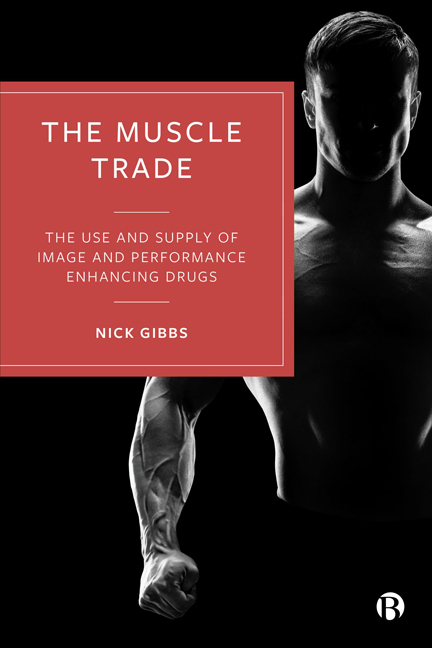Book contents
10 - The IPED Market in Transition: Commercialization, Normalization, and Digitization
Published online by Cambridge University Press: 28 March 2024
Summary
Turning to recent developments in the broader illicit ergogenic aids market, this chapter follows Fincoeur et al’s (2015) contention that the IPED market is experiencing a number of significant shifts and cannot now exclusively be understood in line with the notion of offline minimally commercial and social supply.
Commercialization and community breakdown
Despite the culturally embedded supply chains employed by most of my community-based sample, I became increasingly aware of some simmering tensions in the broader IPED market as I spent longer in the field. Even those who engaged in Potsford’s local closed market expressed a perception that the ‘good old days’ of IPED supply as a community enterprise were numbered and appeared resigned to the fact that increased profitability and scale of production were fundamentally altering the market. This sentiment was voiced by non-IPED user Scott who, deriding the notion of social supply, scoffed:
‘Why would you sell anything just for a social benefit? … If you’re selling anything there’s always money in it, not just because you feel like it, it’s money. … Nah, I can’t see the social side of it, it’s not like they’re going round with an ice cream cart [saying], “Come and get your steroids”.’
Scott captures the general cynicism that my sample expressed regarding the motivations of most actors in the market, despite the fact that many of them used the supply chains that he critiques. Fincoeur et al (2015) echo this in their finding that the market for recreational weight trainers and bodybuilders in the Netherlands and Belgium has experienced a move away from minimally commercial and social-commercialist supply, towards what they call ‘market-oriented dealers’. They describe how these actors lack the community ties that underlie closed markets and are instead entirely motivated by maximizing their revenues. The authors attribute this to growing regulatory oversight and the associated increase of risk for sellers, arguing that the otherwise law-abiding culturally embedded suppliers have essentially been forced out of the market as a result of the ‘war on doping’. However, I found the IPED market to be extremely poorly regulated (Gibbs, 2022).
- Type
- Chapter
- Information
- The Muscle TradeThe Use and Supply of Image and Performance Enhancing Drugs, pp. 126 - 135Publisher: Bristol University PressPrint publication year: 2023



